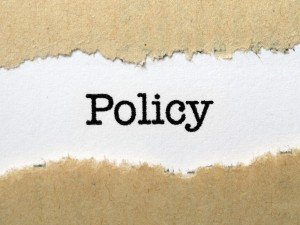
One of the first discussions I have with clients is to figure out what pages their website needs in order to get started. As you read last week, your website doesn't need to immediately launch with every page you will ever create. Your website does need a few pages, though, in order to launch with enough content to capture the attention of your soon-to-be web surfing visitors.
Fortunately, there is a basic set of pages that every starting small business website needs. Now, with all due respect to Nigel Tufnel, let's crank it up to eleven with the Top 11 Pages Your Websites Needs and what content those pages should include.
#1 - Home Page
This is your chance to make a great first impression. Provide an engaging summary of you, your business, and what you have to offer. Tease content on other pages and provide easy to follow links to those pages. The front page is just a summary, the details of your business and offerings will be covered in other pages. An opt-in email signup should also be right up front where it's easy to find.
#2 - Contact
Only a thousandth of a percent less important that the teaser of what you do is how to contact you. You'll want to provide some or all of the following:
- Online contact methods: email address, social media profile links (Facebook , Twitter, LinkedIn, etc);
- Your phone number (and fax if you use one)
- Mailing address
- Physical address and directions on how to get there (if you operate a brick & mortar business)
- Hours of operation (especially for brick & mortar, but this can also be useful for consultants and coaches);
- A contact form
You probably already know this from your experiences -- it is extremely frustrating to go to a website, decide you want to get in contact with the business, and then have to search for ways to reach them. Make the Contact page link easy to find in your main menu. I also recommend putting a link to your contact page in the footer of your website so that it shows up on every single page.
#3 - About / History
As a small business, your unique style, perspective, personality are a big part of your offerings. Developing meaningful relationships with clients can have a lot to do with revealing information about you and/or your business. Tell customers, both current and potential, about how your business got started, what differentiates you from the competition, awards and special recognition received, and even photos of your employees. This can be especially important for small businesses that interact directly with the public. Check out the Brew Crew page at Saint Arnold Brewing where they introduce every employee in the building.
#4 - Services / Products
If you're in business, you sell some kind of product or service or both (use both a Products and a Services page in that case.) Begin with a brief overview and then list the products/services in more detail below that. If your products or services each have a great deal of information, you might consider a separate page for each with the main Products or Services pages just providing a brief teaser along with a link to the details page.
If you sell online, be sure to link up your e-commerce section to these pages so customers can purchase right when they're reading about them and enthusiastic.
#5 - Value Proposition
(or Why You Should Choose Us)
Look at your target market and determine what they value. Then explain to them using regular language (as opposed to corporate jargon and buzzwords) what you are offering, the benefits (not the features) they will receive, what differentiates you from your competitors, and provide some proof.
# 6 - Testimonials
Have you ever tried to tell someone how awesome you are? It can be very uncomfortable to brag about yourself. But letting other people do the bragging for you can be a huge boost to your credibility. Get customers to give a brief statement about how you have helped them. It could be written or even on video. Include a photo (if possible) with written testimonials.
#7 - Blog
Blogging drives traffic to your website because search engines love to gather up all that fresh content and provide it to the web surfers and searchers. Once the traffic arrives, blogging demonstrates your authority on the subject and converts that traffic into leads for your business.
There's almost no end to the business-appropriate things you can write about on your blog: completed projects, new products or services you offer, new products and services you now use to help your clients more, employee achievements, and much more.
#8 - Frequently Asked Questions (FAQ)
You'll get some questions over and over. Your FAQ is a great place to respond to those as well as addressing possible objections or barriers that people might have.
#9 - Privacy Policy & Disclosure
 I wrote a short article about these two pages just a few weeks ago, but the nuts and bolts is that if you're collecting personal information (like email addresses) you need a Privacy Policy. And if you are making money (by selling products or through advertising of some sort,) you need a Disclosure Statement.
I wrote a short article about these two pages just a few weeks ago, but the nuts and bolts is that if you're collecting personal information (like email addresses) you need a Privacy Policy. And if you are making money (by selling products or through advertising of some sort,) you need a Disclosure Statement.
#10 - Newsroom
When your business makes news that is reported by others, collecting a list of links to those articles on your website allows you to brag without bragging (like the testimonials above, it's someone else touting you.) Pull together all these clippings along any press releases you've created, your headshots (in case a journalist wants to write a story about you and include a photo,) and your bio.
#11 - Portfolio
For businesses that create something, your portfolio shows off your past projects and lets the world see what you are capable of doing. Writers, photographers, artists, web designers, home builders, landscapers, and more can benefit from displaying their work.
The Quick Takeaway
You don't necessarily need all of these pages. Give them all some consideration and then choose the ones that are right for you and your small business website.
Photo Attribution
"Hardcover book gutter and pages" by Horia Varlan is licensed under CC BY 2.0